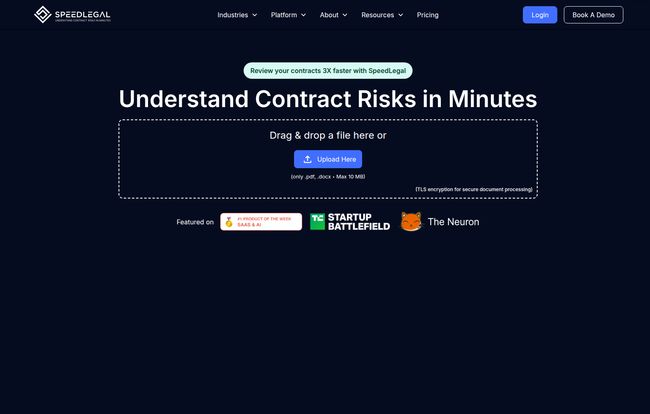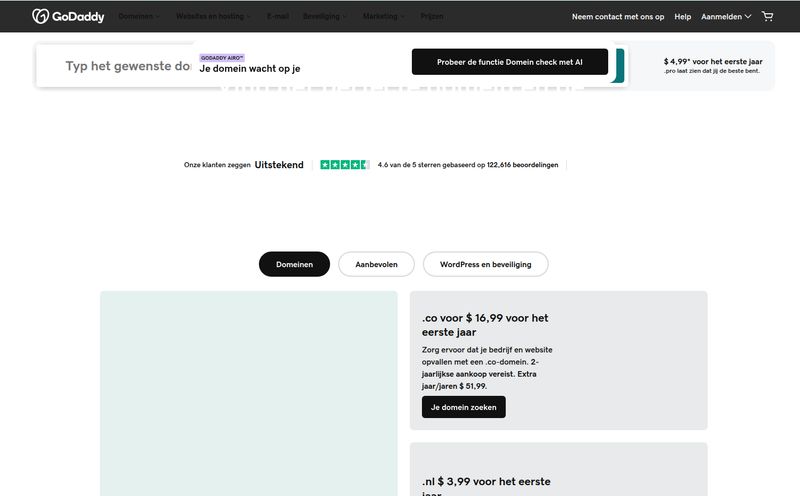I’ll never forget the cold sweat. It was years ago, a freelance gig I was super excited about. The contract landed in my inbox—a dense, 15-page PDF that looked like it was written in another language. A language called Legalese. I did what most of us do: I scrolled to the bottom, squinted at the payment terms, and signed. Big mistake.
A few months later, a weird clause about content ownership I’d completely missed came back to bite me. It cost me time, money, and a whole lot of stress. We’ve all been there, right? Staring at a contract, feeling that knot in your stomach, wondering what lurking monster you’re missing. It’s a terrible feeling.
That’s why when I first heard about tools like SpeedLegal, my ears perked up. An AI that reads contracts for you? One that flags the scary stuff and explains it in plain English? It sounds almost too good to be true. So, naturally, I had to see for myself if this was just more tech hype or a genuine game-changer for people like us.
Okay, But What is SpeedLegal, Exactly?
Think of SpeedLegal as your personal AI paralegal. It's a platform where you upload a contract, and in minutes—literally, minutes—it chews through the dense text and spits out something you can actually understand. It’s designed to be that first line of defense, helping both legal pros and, more importantly, the rest of us who didn’t go to law school.
It’s not just about finding typos. The whole point is to analyze the document for risks, unfavorable terms, and weird obligations you might otherwise miss. It translates the jargon, summarizes the key points, and gives you a fighting chance in any negotiation.

Visit SpeedLegal
How SpeedLegal Turns You into a Negotiation Pro
So what does this AI-powered magic actually look like in practice? It’s not just one thing; it's a combination of features that work together to give you back the power in a negotiation. After playing around with it, a few things really stood out.
A Smoke Detector for Hidden Risks
This is the big one. The main event. SpeedLegal’s Red Flag Analyzer is like a smoke detector for your contracts. It automatically scans for clauses that are one-sided, vague, or just plain bad for you. Things like weird liability clauses, tricky termination rules, or intellectual property rights that heavily favor the other party. Instead of you needing to read every single line with a magnifying glass and a pounding heart, the tool points a giant, flashing arrow at the potential problems. It’s an incredible time-saver and, honestly, a sanity-saver.
Finally, Contracts in Plain English
Ever read a sentence in a contract three times and still have no clue what it means? Yeah, me too. One of my favorite features is the automated contract summary. It boils down that massive wall of text into a short, simple summary of the most important provisions. What are you promising to do? What are they promising? When does the money show up? It’s like having a super-smart friend who read the whole thing and is now giving you the CliffsNotes version. No more all-nighters with a highlighter pen.
Your AI Negotiation Wingman
Finding a problem is one thing; knowing what to do about it is another. This is where SpeedLegal really shines. It doesn’t just say, “Hey, this clause is bad.” It offers personalized suggestions for how to fix it. It might suggest alternative wording or point out what’s missing based on your own business standards. This is huge. It transforms you from a passive victim of a bad contract into an active participant who can confidently push back with actionable insights. It’s like having a negotiation coach whispering in your ear.
Let's Talk Money: The SpeedLegal Price Tag
Alright, so it sounds great, but what's the damage to the wallet? The pricing structure is actually pretty flexible, which I appreciate. They seem to understand that a solo freelancer has different needs than a growing startup.
Here’s a quick breakdown of their monthly plans:
| Plan | Price/Month | Contract Analyses | Best For |
|---|---|---|---|
| Pro | $39 | 2 | Freelancers or very small businesses with occasional contract needs. |
| Startup | $89 | 5 | Growing businesses, agencies, or startups handling multiple contracts monthly. |
| Growth | Contact Us | 20 | Established teams that need more volume, admin controls, and support. |
| Enterprise | Contact Us | Custom | Large organizations needing custom integrations and high-volume analysis. |
But here's the part I think is brilliant: the On-demand option. You can just pay per review. They estimate an average 10-20 page review costs around $20-35. For someone who only signs a few big contracts a year, this is perfect. No subscription, no commitment, just help when you need it. That's a smart move.
The Big Question: Can You Fire Your Lawyer?
Let's get this out of the way right now. No. And SpeedLegal would probably be the first to tell you that.
An AI, no matter how sophisticated, is a tool. It's an incredibly powerful tool, but it's not a substitute for a qualified human lawyer, especialy for company-defining deals or incredibly complex litigation. AI can miss nuance, cultural context, or the specific intent behind a weirdly worded phrase. The platform itself notes it's primarily focused on Common Law systems (like the US, UK, Canada), so if you're dealing with contracts from a Civil Law jurisdiction, its analysis might not be as sharp.
This isn’t a flaw; it's just the reality of the technology. You wouldn't use a calculator to write a novel. You use the right tool for the job. SpeedLegal is your first, best line of defense. It's for spotting issues, getting 80% of the way there, and going to your lawyer with specific, intelligent questions instead of a vague sense of dread. It makes your time with a lawyer more efficient and valuable.
Interestingly, during its Beta, they've been offering a free human check. That tells me they're aware of the AI's limitations and are building a system that blends the best of both worlds. Very cool.
So Who Should Be Using SpeedLegal?
In my opinion, the sweet spot for a tool like this is massive.
- Startup Founders: You're wearing a million hats, and 'legal expert' probably isn't one of them. This can help you review NDAs, partnership agreements, and vendor contracts without breaking the bank.
- Freelancers and Consultants: You see new client contracts all the time. SpeedLegal can be your quick, affordable sanity check before you sign on the dotted line.
- Small Business Owners: For everything from lease agreements to supply contracts, this gives you a layer of protection and understanding you might not have had before.
- In-House Legal Teams: Yes, even lawyers! For teams buried in contracts, it’s an amazing efficiency tool. It can handle the first pass, freeing up human lawyers to focus on high-level strategy and negotiation.
Frequently Asked Questions about SpeedLegal
- What is SpeedLegal in a nutshell?
- It's an AI-powered software that reviews legal contracts for you. It identifies risks, explains complex terms in simple language, and provides suggestions to help you negotiate better terms.
- What kind of contracts can it handle?
- According to their site, it can review over 25 types of contracts, including common ones like NDAs, Master Service Agreements (MSAs), SaaS agreements, employment contracts, and partnership agreements.
- Is it only for US law?
- It's primarily designed for legal systems based on Common Law, which includes the United States, United Kingdom, Australia, Canada, and others. Its effectiveness might be limited for contracts under Civil Law systems.
- Is SpeedLegal a replacement for a real lawyer?
- Definitively not. It’s a powerful tool to assist you and make you more informed, but for critical, high-stakes contracts, you should always consult with a qualified human attorney.
- How does the pricing work?
- They offer several monthly subscription tiers (Pro, Startup, etc.) based on the number of contracts you need to review. They also have a fantastic pay-as-you-go "On-demand" option for infrequent users.
My Final Take on SpeedLegal
After digging in, I'm genuinely impressed. SpeedLegal isn’t selling a fantasy where lawyers become obsolete. It's selling something far more realistic and, in my opinion, more valuable: confidence.
The confidence to open a contract without your stomach dropping. The confidence to ask intelligent questions and push back on unfavorable terms. And the confidence that you're not blindly walking into a bad deal.
For the insane amount of time and potential heartache it can save you, the price feels more than fair, especially with the on-demand option. It democratizes the first pass of contract review, taking it out of the exclusive hands of those who can afford a lawyer on retainer and giving that power to everyone. And that’s something I can absolutely get behind.



